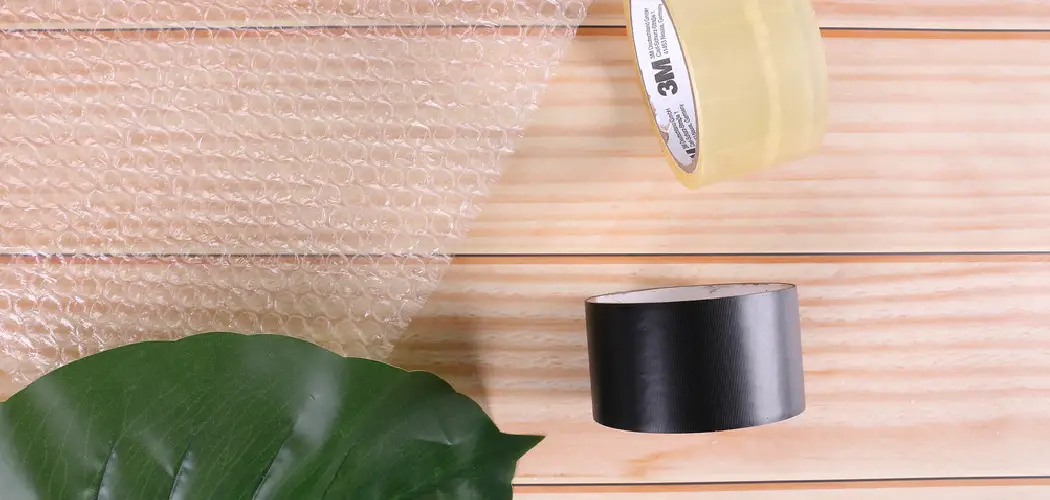Resin tape is a versatile, high-strength adhesive tape with various industrial, automotive, and construction applications. It is popular for sealing, bonding, wrapping, and fastening materials. Resin tape is highly resistant to water, oil, and solvents, making it ideal for use in harsh environments. In this blog post, we will discuss how to use resin tape effectively for your DIY projects.
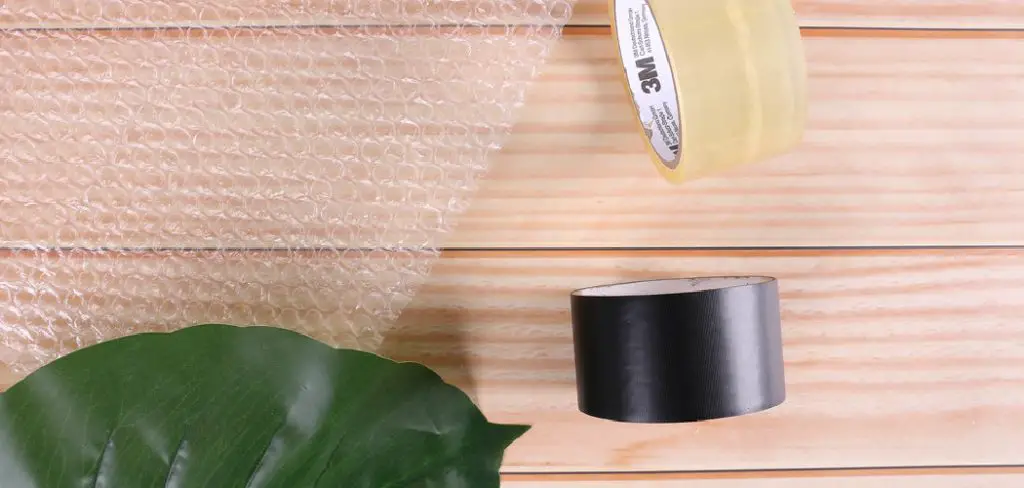
Can You Use Resin Tape?
Resin tape is a versatile tool to have in your toolbox. Resin is a type of polymer that is resistant to damage from UV rays and moist environments, making it a great material for sealing and binding applications. A popular application of resin tape is in electrical work, where it is used for insulating and protecting wires and cables.
The tape can also be used for repairing plastic objects, such as toys and furniture. Its durability makes it perfect for outdoor use, too. Whether you need to patch up a cracked pipe or fix a hole in your kayak, resin tape is an excellent option to have on hand. With its easy-to-apply adhesive backing, anyone can use resin tape to tackle various tasks.
Why Should You Use Resin Tape?
Have you ever experienced the frustration of a leaky pipe or a broken piece of furniture? It can be a hassle to fix, but the solution is easy with resin tape. Resin tape is a versatile adhesive that can seal cracks and leaks quickly and efficiently. One of the biggest advantages of using resin tape is its waterproof capabilities.
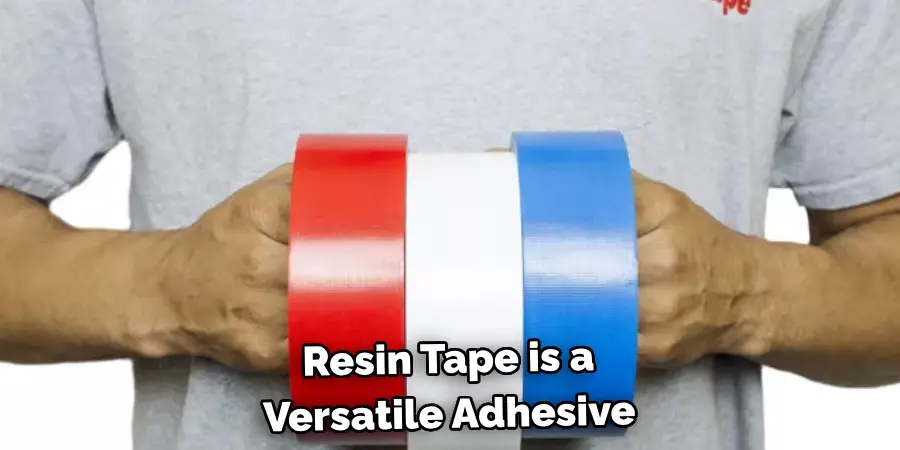
It is incredibly durable and water-resistant, making it the perfect outdoor or indoor repair solution. In addition, it can withstand high temperatures and provide unmatched strength and durability. Using resin tape is an easy solution to fix any mishap, so having it on hand is a smart decision.
All You Need to Know About How to Use Resin Tape
1. Choosing the Right Type of Resin Tape
Resin tape comes in various types, each with its unique properties. Choosing the right type of resin tape for your application is essential. For instance, if you want to insulate electrical wires, you need to use electrical-grade resin tape.
If you want to seal water pipes, you’ll need to use waterproof resin tape. Always read the manufacturer’s instructions before using any type of resin tape, as each type has its recommended application.
2. Prepare the Surface
The surface where you’ll apply resin tape should be clean, dry, and free from any dust, grease, or debris. Use a degreaser or rubbing alcohol to clean the surface and allow it to dry completely before applying the resin tape. Applying resin tape to a dirty or damp surface will weaken its adhesive properties.
3. Applying the Resin Tape
Resin tape is easy to use but requires careful attention to get the desired results. To apply the tape, cut it to the desired length, remove the backing, and place it on the surface while applying pressure. Run a roller over the tape to smooth out any wrinkles or bubbles. For surfaces with complex shapes, you may need to cut the tape into smaller pieces to achieve a proper fit.
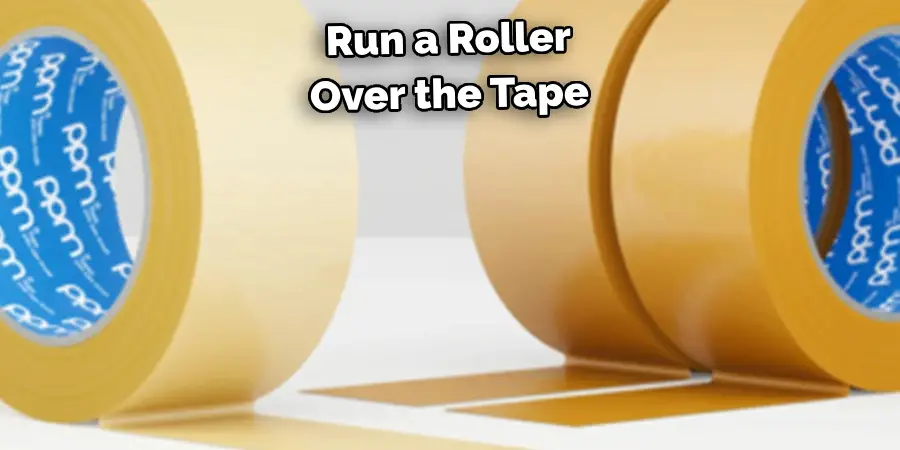
4. Using Resin Tape for Repair
Resin tape is an excellent tool for repairing household items. For example, if you leak your water pipe, you can wrap it with waterproof resin tape to seal the leak temporarily. If your car’s window glass is cracked, you can use resin tape to cover the crack temporarily until you can replace the glass. Resin tapes can also be used to repair tents, tarps, and other outdoor gear.
5. Storage
How you store your resin tape is crucial to keep its adhesive properties intact. Store your resin tape in a cool, dry place away from direct sunlight. Exposure to sunlight and high temperatures can weaken the tape’s adhesive properties. Also, seal the tape properly after use by pressing down the adhesive side to prevent air from getting in. Proper storage will ensure that your resin tape remains effective for future use.
6. Cutting and Handling
Cutting and handling resin tape requires some care to avoid damaging the adhesive properties. When cutting the tape, use sharp scissors or a utility knife. Dull blades can leave jagged edges that may not adhere properly. Also, avoid touching the adhesive side of the tape with your fingers, as this can transfer oils and dirt, weakening its bonding abilities.
7. Removing Resin Tape
Removing resin tape is a simple process, but it requires caution to avoid damaging the surface underneath. Slowly peel off the tape at a 45-degree angle while applying heat from a hairdryer or heat gun. The heat will soften the adhesive, making it easier to remove. Avoid pulling the tape straight off, as this can cause damage to delicate surfaces. Once removed, clean any remaining residue with a mild solvent.
That’s it! You’ve now learned how to use resin tape effectively. Remember, always follow the manufacturer’s instructions and carefully handle the tape. With these tips in mind, you can make the most out of your resin tape for all your repair and insulating needs.
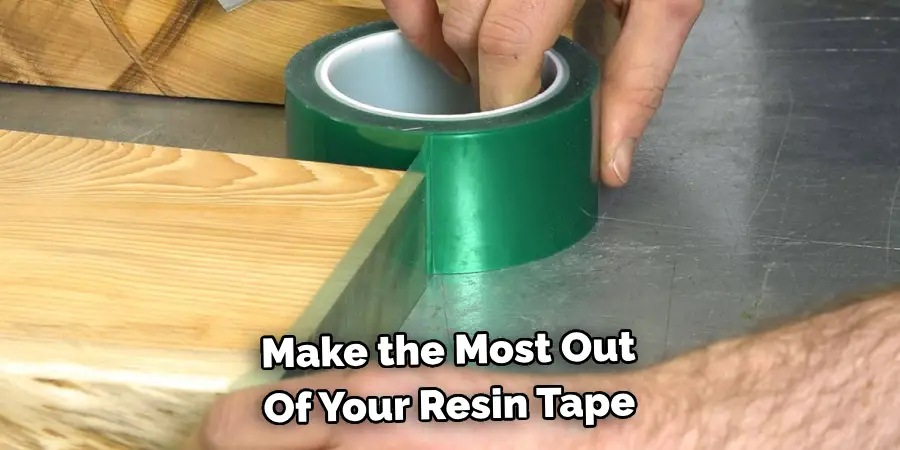
3 Considerations Things When You Need to Use Resin Tape
1. Adhesion
When selecting a resin tape, one of the most important considerations is the adhesion of the tape. You want to ensure the tape will adhere properly to your surface and stay in place for as long as possible. You should consider the type of surface to which you are applying the tape and select a tape with an appropriate adhesive strength. Additionally, you may want to test out different tapes on a sample surface before committing to one.
2. Temperature Resistance
Another important consideration when selecting a resin tape is its temperature resistance. Resin tapes can be used in various temperatures, but some are better suited for extreme temperatures than others. Make sure you select a tape that can withstand high and low temperatures if you plan on using it in extreme conditions. Additionally, some tapes may become brittle or lose their adhesive strength when exposed to extreme temperatures, so check this before purchasing.
3. Chemical Resistance
Finally, it is important to consider the chemical resistance of the resin tape you are selecting. Some tapes are more resistant to chemicals than others, so make sure that you select one that can withstand any chemicals or solvents that may come into contact with it during use. Additionally, some tapes may be more resistant to specific types of chemicals than others, so make sure you understand what type of chemical resistance each type of resin tape provides before making your selection.
5 Benefits of Using Resin Tape
1. High Strength
Resin tape is a type of adhesive tape that is made from a combination of synthetic resins and rubber-based adhesives. It is known for its high strength, making it ideal for use in applications requiring a strong bond. This makes it perfect for the construction, automotive, and aerospace industries, where parts must be securely held together. Resin tape can also seal joints and seams to provide an airtight seal.
2. Chemical Resistance
Another benefit of resin tape is its resistance to chemicals. The synthetic resins that are used to make the tape are resistant to many common solvents, oils, and other chemicals, making it suitable for use in environments where exposure to these substances is likely. This makes it perfect for use in industrial settings or areas where hazardous materials may be present.
3. Temperature Resistance
Resin tape also has excellent temperature resistance, making it suitable for use in hot and cold environments. The tape can withstand temperatures up to 350 degrees Fahrenheit without losing its adhesive properties. It is perfect for applications with extreme temperatures, such as vehicle engines or outdoor lighting fixtures.
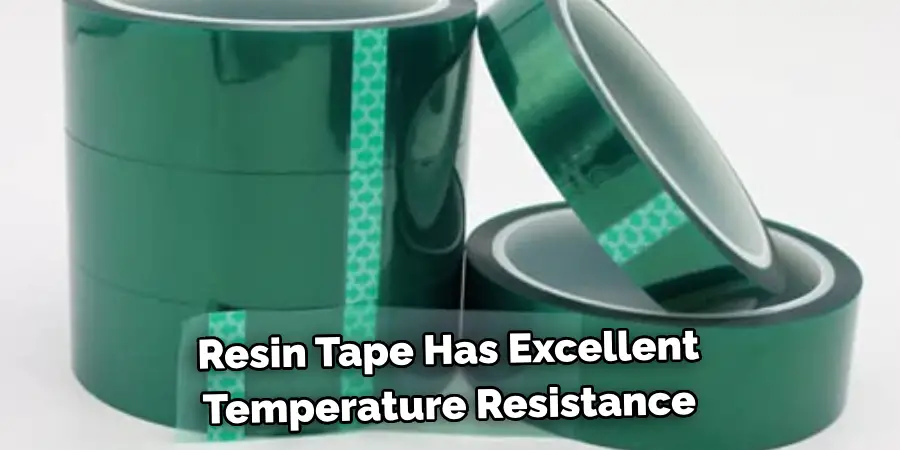
4. Waterproof
Resin tape is also waterproof, making it ideal for outdoor or wet use. The waterproof nature of the tape means that it can be used safely around water sources such as pools or ponds without fear of the adhesive becoming compromised over time due to exposure to moisture or humidity levels.
5. Easy Application
Finally, resin tape is easy to apply and requires no special tools or equipment for installation. The adhesive on the back of the tape allows it to stick easily and securely onto surfaces with minimal effort, making it perfect for DIY projects or repairs around the home or office without needing professional assistance.
4 Common Mistakes People Make When Trying to Use Resin Tape
1. Not Preparing the Surface Properly
One of the most common mistakes people make when using resin tape is not preparing the surface properly. Resin tape needs a clean, dry surface to adhere properly. If there is any dirt, dust, or moisture on the surface, it can prevent the tape from sticking and lead to a poor seal. Before applying resin tape, thoroughly clean and dry the surface.
2. Not Measuring Accurately
Another mistake people often make when using resin tape is not measuring accurately. It’s important to measure twice and cut once to ensure that you have enough material for your project. If you don’t measure accurately, you may have too little or too much material, leading to a subpar result.
3. Not Applying Even Pressure
When applying resin tape, it’s important to apply even pressure across the entire length of the tape to ensure that it adheres properly. If you don’t apply even pressure, some areas may not stick as well as others and could lead to an uneven seal or gaps in your project.
4. Not Allowing Enough Time for Curing
Finally, many people make the mistake of not allowing enough time for curing after applying resin tape. Resin tapes need time for the adhesive to fully cure before they are put into use—typically 24-48 hours, depending on temperature and humidity levels—so it’s important to plan ahead and allow enough time for curing before attempting any further work with your project.
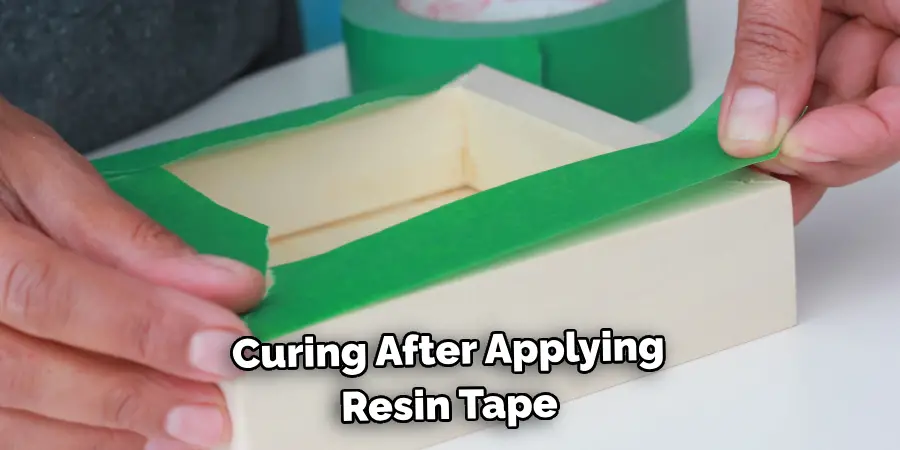
Conclusion
In conclusion, resin tape is an indispensable tool for many DIY projects. Choosing the right type of tape, preparing the surface, and applying the tape with care will help you achieve successful results. Always follow the manufacturer’s instructions to ensure proper application and storage. Resin tape has many benefits, including durability, water resistance, and versatility. With practice, you can become a pro in using resin tape for your DIY projects. Thanks for reading our post about how to use resin tape.

